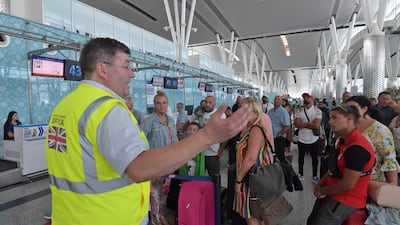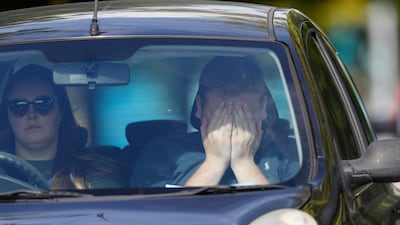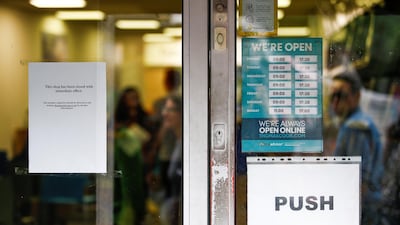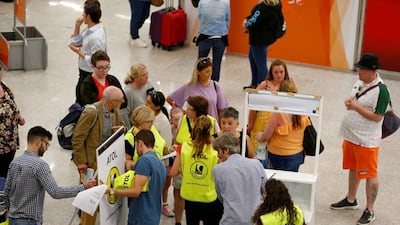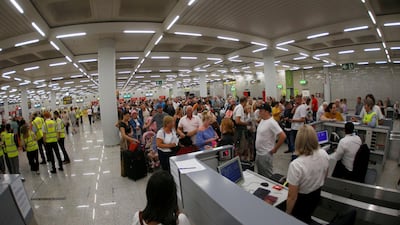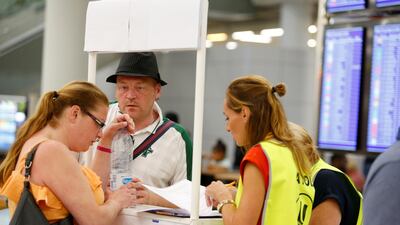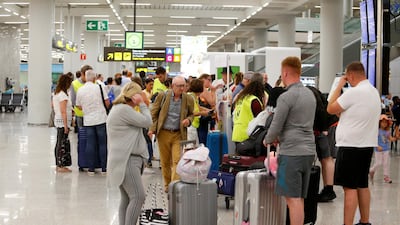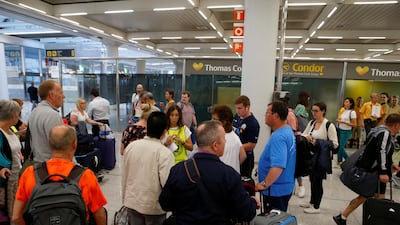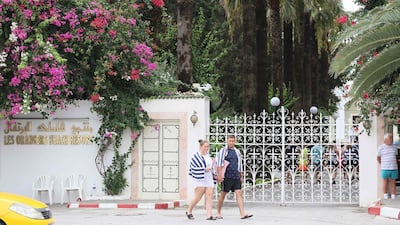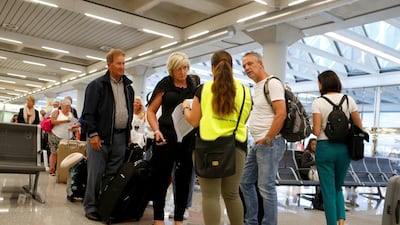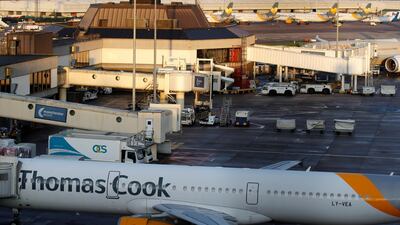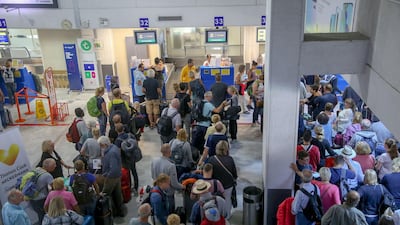UK premier Boris Johnson defended his government’s refusal to prevent the collapse of the world’s oldest travel firm as it launched a £100 million operation to bring back more than 150,000 stranded British holidaymakers.
Mr Johnson was out of the country when the collapse of Thomas Cook was announced early on Monday threatening the loss of some 22,000 jobs in a fresh blow for a government grappling with the potential fallout from Brexit.
The failure of Britain’s largest holiday network triggered the country’s largest peacetime repatriation of Britons, with planes heading to 18 countries.
The prime minister’s absence was seized on by the political opposition which accused the government of a “reckless” abandonment of Thomas Cook staff and said that an injection of government money could have stabilised the situation.
The business spokeswoman for the opposition Labour party, Rebecca Long-Bailey, said there should have been a state-backed rescue plan. The collapse was “yet more evidence of this Government’s indifference to British jobs and businesses going under”, she said.
The government warned that a short-term bailout of £250 million (Dh 1.1 billion) bailout could create a precedent for saving failing businesses in the future. It said the company had debts of £1.7 billion, which made its long-term future perilous.
The prime minister pointed the finger at company’s highly-paid executives and questioned whether they were motivated to emerge from the crisis.
“Clearly that's a lot of taxpayers' money and sets up, as people will appreciate, a moral hazard in the case of future such commercial difficulties that companies face,” Mr Johnson told reporters on his aeroplane to New York where he was due to attend the UN General Assembly.
The government on Monday triggered “Operation Matterhorn” the mission to fly back more than 150,000 people to the UK.
A total of 600,000 people were on Thomas Cook holidays across the world at the time of its collapse. All future Thomas Cook bookings have been cancelled affecting a further one million people.
The company, which has a history stretching back to the mid-nineteenth century, entered into compulsory liquidation after the failed request for government money.
Officials have hired a fleet of 45 aircraft to cover the grounded Thomas Cook flights over the next fortnight, with holidaymakers being brought home free of charge.
The failure of the all-inclusive travel provider has, however, seen customers having to cover extra costs as their holiday arrangements were thrown into disarray.
The repatriation operation was dubbed Duncook on social media – referring to the Second World War operation to return more than 300,000 troops from the beaches of Dunkirk after they were cut off by a German advance.
The collapse created confusion, with some tourists reporting that hotels were not allowing them to leave without paying their unmet bills.
Matt Kind, 47, from Leicester, told The National that he was due to fly home from Dalyan in Turkey on Monday.
“The hotel has stated they have not been paid anything (by Thomas Cook) since May and require full payment prior to our departure,” he said.
The first repatriation flight took off from John F Kennedy international airport on Monday, taking 300 Thomas Cook passengers to Manchester.
UK transport secretary Grant Shapps said: “Our contingency planning has helped acquire planes from across the world – some as far away as Malaysia.
“The government and UK CAA is working round the clock to help people,” he said.
The transport secretary asked customers to be “understanding” as it carried out the “enormous task” and said there were “bound to be problems and delays”.
The British Airline Pilots’ Association (BALPA) condemned the government’s decision not to step in.
BALPA general secretary Brian Strutton said the hopes of Thomas Cook employees who thought the company could be saved had been “brutally quashed”.
Mr Strutton criticised members of the government for claiming credit for repatriation plans when “staff have been stabbed in the back without a second’s thought”.
“It’s despicable,” Mr Strutton said.
Manuel Cortes, leader of the Transport Salaried Staffs Association, a union representing the workers, said the government had “ample opportunity to step in and help Thomas Cook”.
Mr Cortes said the government “has instead chosen ideological dogma over saving thousands of jobs”.
The government has pledged it will “do all it can to support” the former employees of Thomas Cook.
Business secretary Andrea Leadsom said: “This will be a hugely worrying time for employees of Thomas Cook, as well as their customers.”
